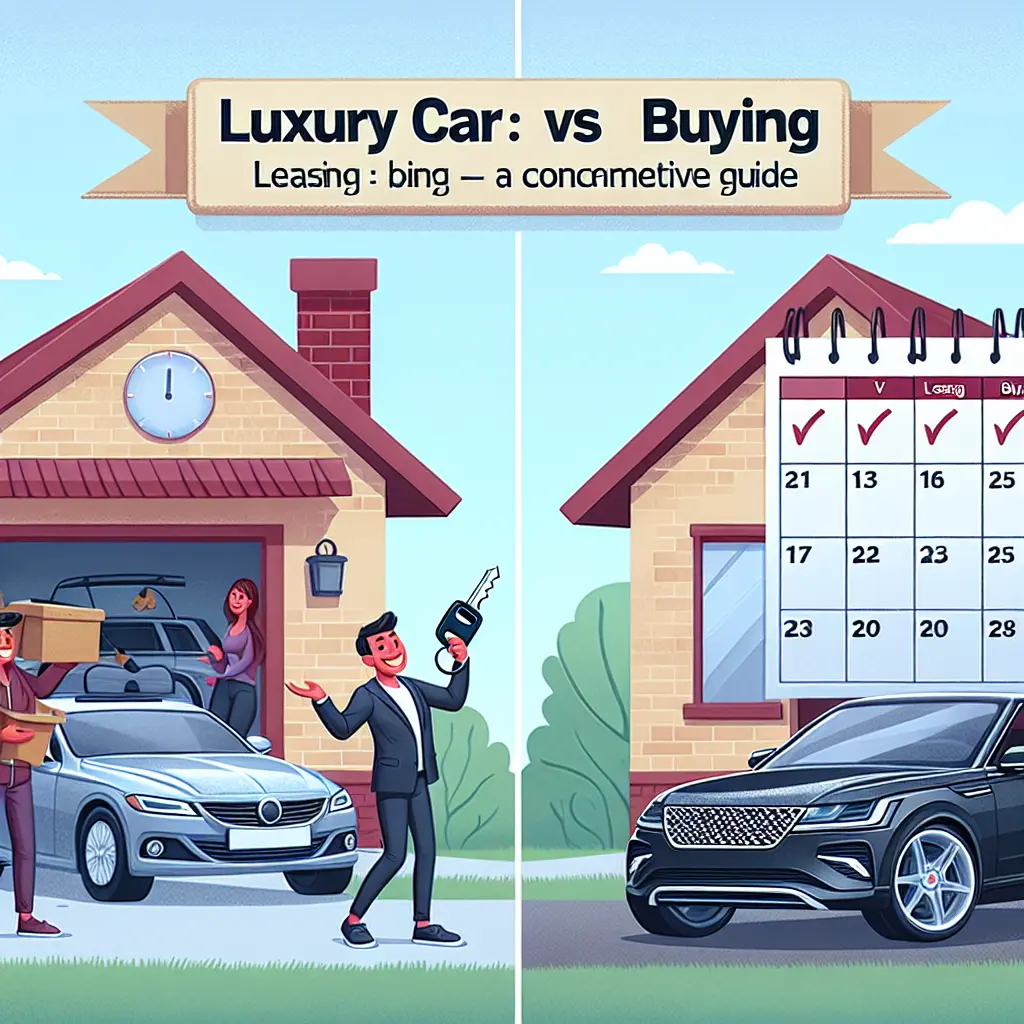In the dynamic world of luxury automobiles, deciding between leasing or buying a luxury car is a pivotal decision that discerning consumers face. With the automotive landscape rapidly evolving due to factors like electric vehicle (EV) adoption, political shifts, and economic changes, understanding the nuances of luxury car leasing and buying is more critical than ever. This comprehensive guide delves into the lease vs. buy luxury car debate, offering insights into the benefits of leasing luxury cars versus the advantages of buying luxury cars. We'll explore cost considerations, luxury car depreciation, and the current trends impacting your decision in 2024.
The auto industry is currently navigating a period of "panic" and uncertainty as U.S. EV adoption lags behind expectations. However, industry experts anticipate a tipping point in the near future, as carmakers adapt to these challenges with innovative strategies. This context is crucial for understanding the potential long-term cost of luxury cars, especially as electric models gain prominence.
In 2024, political dynamics are also influencing the automotive sector. Following a significant electoral victory by Starmer's Labour government, the industry is bracing for potential policy shifts. These changes may affect everything from manufacturing practices to consumer incentives, which can directly impact your decision to lease or buy.
Deciding between leasing and buying a luxury car requires a thorough understanding of their respective benefits and drawbacks.
Leasing Luxury Cars
The Pros and Cons of Leasing vs Buying
Benefits of Leasing Luxury Cars:
Lower Monthly Payments: Typically, leasing offers lower monthly payments compared to financing a purchase, making it an attractive option for budget-conscious consumers.
Access to New Models: Leasing allows you to drive the latest models with updated features every few years.
Less Depreciation Concern: With leasing, you avoid the significant depreciation hit that comes with luxury car ownership.
Luxury Car Lease Deals: In 2024, attractive lease deals continue to entice consumers who prefer short-term commitments. For example, many manufacturers offer incentives like zero down payments or reduced interest rates.
Advantages of Buying Luxury Cars:
Financial Considerations in Leasing vs Buying
Long-Term Ownership: Buying provides the satisfaction of ownership and the freedom to modify your vehicle as you wish.
Equity Building: Payments contribute towards equity in your vehicle, which can be beneficial in the long run.
Luxury Car Financing: While initial costs are higher, financing options offer flexible terms and potential ownership of a valuable asset.
Cost of Leasing Luxury Cars: Leasing often involves lower initial costs and predictable expenses. However, be mindful of mileage restrictions and potential fees for excessive wear and tear.
Cost of Buying Luxury Cars: Although buying incurs higher upfront costs, it eliminates restrictions associated with leases and offers potential tax benefits in some jurisdictions.








Leave a Comment